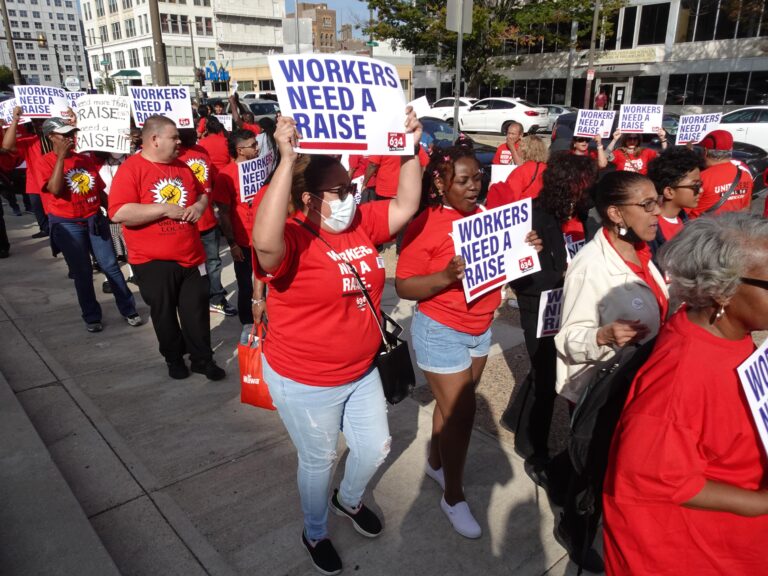Philadelphia Educators Prepare for Possible Strike Amid Contract Deadlock
The Philadelphia Federation of Teachers (PFT) is intensifying its efforts as contract discussions with the School District of Philadelphia stall. After prolonged negotiations, union representatives caution that without meaningful advancements on critical issues such as compensation, class sizes, and workplace conditions, educators may resort to strike action to advocate for their demands. This potential labor action underscores escalating tensions between the union and city officials, reflecting broader systemic challenges within Philadelphia’s public education system.
Union’s Core Concerns and Contract Disputes
At the heart of the impasse are fundamental disagreements over salary increases, classroom environments, and support services. The union insists that current pay scales fail to keep up with Philadelphia’s rising living costs, contributing to financial hardships for teachers. Additionally, overcrowded classrooms and insufficient support personnel are cited as factors that hinder effective teaching and student success.
The union’s principal demands include:
- Substantial salary raises aimed at retaining veteran educators and attracting new talent.
- Smaller class sizes to foster individualized learning and better student engagement.
- Expanded mental health resources addressing the growing emotional and psychological needs of students and staff.
- Enhanced safety protocols and facility upgrades to ensure secure learning environments.
Below is a comparison of the union’s proposals versus the district’s offers:
| Issue | Union Proposal | District Proposal |
|---|---|---|
| Salary Increase | 8% over 2 years | 4% over 2 years |
| Class Size Limit | Maximum 20 students | Maximum 30 students |
| Health Benefits | Lower copayments | No modifications |
| Professional Development | Additional paid days | Maintain current allotment |
Driving Factors Behind the Potential Strike
The union’s push for a strike centers on securing equitable pay and improving classroom conditions that directly affect both educators and learners. Teachers highlight that stagnant wages have not matched inflation rates, intensifying economic pressures. Moreover, the increase in class sizes and lack of adequate support staff exacerbate workloads, diminishing the quality of education delivered.
Key demands include:
- Salary adjustments that reflect inflation plus performance-based incentives.
- Class size reductions to enable more effective teaching and personalized attention.
- Broadened mental health services to support the well-being of students and educators, especially in the wake of pandemic-related stressors.
- Upgraded safety measures encompassing facility improvements and enhanced security protocols.
| Demand | Expected Benefit | Negotiation Status |
|---|---|---|
| Salary Increase | Financial security for educators | Ongoing discussions |
| Class Size Reduction | Enhanced student participation | Awaiting agreement |
| Mental Health Expansion | Better emotional support | Requested |
| School Safety Improvements | Safer learning spaces | Under review |
Anticipated Effects on Students and School Functioning
The prospect of a strike raises concerns about disruptions to students’ education and daily school operations. Families are increasingly anxious about alternative learning arrangements, particularly for younger children who depend on consistent school attendance. While the union emphasizes that the strike aims to resolve long-standing issues affecting educational quality, the immediate consequences will likely include missed instructional time and the suspension of extracurricular programs.
School administrators will face challenges managing closures and maintaining communication with families and staff. Essential services such as school meal programs and transportation may be interrupted, disproportionately affecting vulnerable students. The table below outlines the expected operational impacts during a strike:
| Area | Impact | Duration |
|---|---|---|
| Classroom Instruction | Suspended or limited learning activities | Until resolution |
| School Meal Programs | Disruptions or cancellations | Strike days |
| Transportation Services | Reduced or halted bus routes | During strike |
| Extracurricular Activities | Postponed or canceled events | Indefinite |
- Parents are advised to arrange alternative childcare plans.
- Students should take advantage of available online learning tools.
- Staff advocate for a prompt resolution to minimize educational disruption.
Approaches to Reduce Disruption and Facilitate Agreement
To avoid prolonged interruptions and encourage constructive negotiations, both the union and district are considering several strategies. Establishing open and transparent communication is a priority to address concerns promptly and prevent escalation. The involvement of impartial mediators with expertise in educational labor disputes is also being explored to help bridge differences and foster compromise.
Additional measures include:
- Temporary staffing arrangements to maintain classroom continuity if a strike occurs.
- Conflict resolution training designed to build mutual trust between union representatives and district officials.
- Phased negotiation milestones allowing incremental progress while broader contract issues are resolved.
| Strategy | Objective | Anticipated Result |
|---|---|---|
| Mediator Involvement | Neutral facilitation | Expedite consensus |
| Transparent Communication | Enhance openness | Reduce conflicts |
| Contingency Planning | Ensure classroom stability | Limit educational disruption |
Conclusion: Navigating Toward a Resolution
As negotiations between the Philadelphia teachers union and the school district continue without resolution, the possibility of a strike remains a pressing concern. Educators emphasize the urgency of addressing compensation, working conditions, and classroom resources to improve the educational environment. Stakeholders across the city are closely monitoring developments, hopeful for a settlement that supports students, teachers, and families in the coming weeks.








